How Much Does It Cost to Remodel a Small Bathroom? [2025 Data]
The cost of a small bathroom remodel is $6,500 on average, but it can cost between $1,500 and $15,000 or more depending on how complex your remodel is.


The type of bathroom fixtures and quality of the finishes are the largest contributors to the cost of remodeling a small bathroom.
Labor will account for about half of your bathroom renovation cost, and you may need to hire specialists like a structural engineer.
Budget for potential costs during the project, such as asbestos removal, water damage repair, and junk removal.
Sticking to small upgrades will lower costs but leave all plumbing, electrical, and structural elements to the pros.
The average small bathroom remodel cost is $6,500. You can expect to spend between $1,500 and $15,000 or more, depending on the scope of the makeover, the materials, and whether you tackle some of the work yourself. Along with increasing your home’s resale value, remodeling can increase your bathroom’s energy efficiency and create a more enjoyable place to unwind. Let’s take a look at the cost to remodel a small bathroom.
Small Bathroom Remodel Cost Factors
The cost of a small bathroom remodel is determined by two important factors: labor and materials (including fixtures). Of course, other factors also influence the total cost—more on that below.
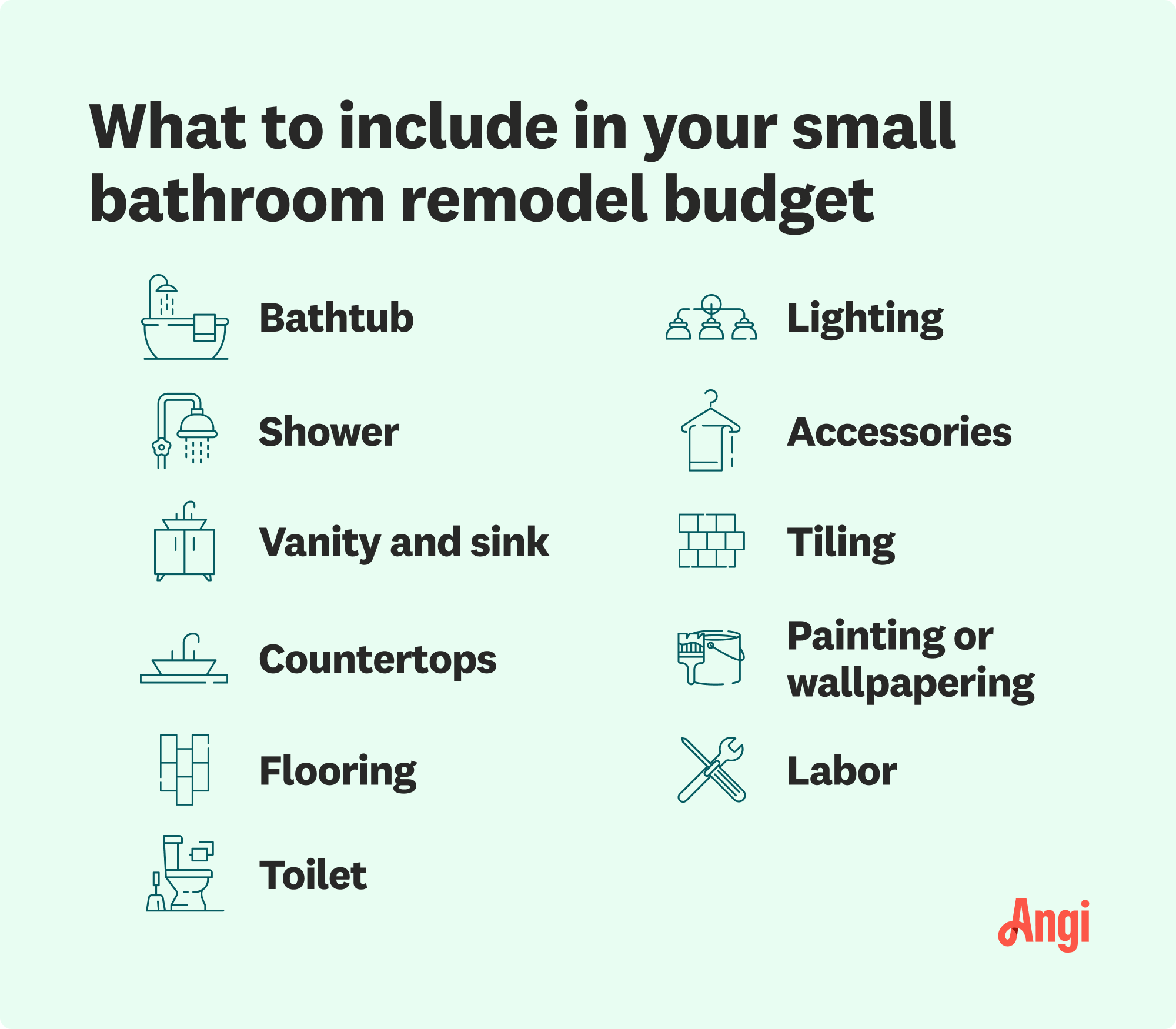
Labor
The cost to hire a professional contractor is $300 to $500 per day, but you will likely get a flat project rate unless you specifically hire someone by the hour. You can expect contractor costs to account for about 40% to 60% of your total project cost.
Materials
Materials play a big part in your final budget. Luxury fittings and custom designs will increase the project cost, while budget-friendly materials will keep costs down.
Flooring
Here are some common bathroom flooring types and how much you can expect to spend:
Basic vinyl flooring: $2–$7 per square foot
Textured marble slabs: $10–$20 per square foot
Porcelain tiles: $0.50–$15 per square foot
Stone flooring: $6–$20 per square foot
Countertop or Vanity
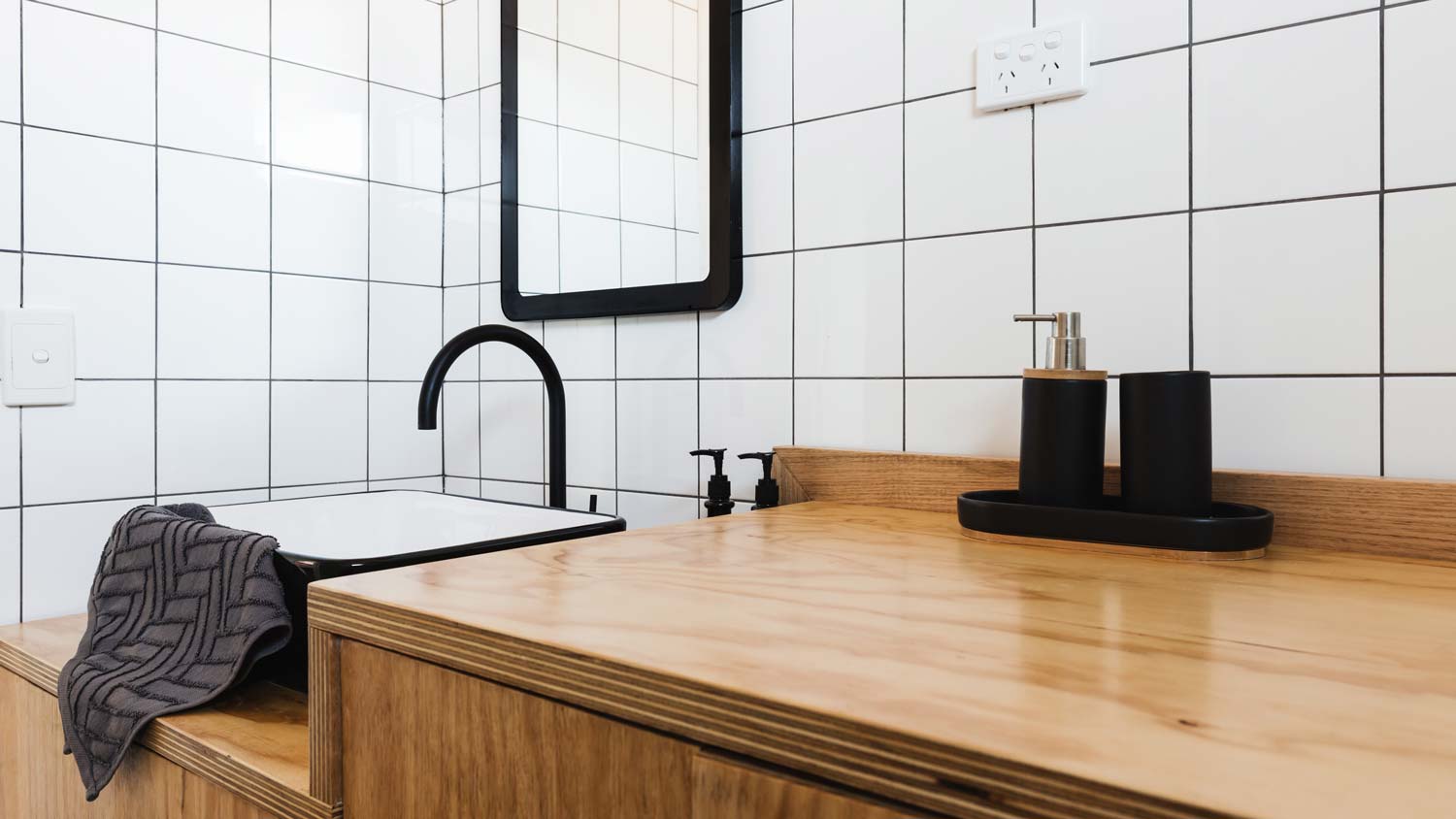
Space-saving vanities are the centerpiece of many bathrooms, and the countertops you choose can make or break the cohesion of your design. How much you spend depends on the type of material and whether the unit is custom-made.
The cost of a bathroom vanity ranges from $300 for a prefabricated model to $3,800 or more for made-to-order one. You’ll also need to budget for a sink and faucet if they don’t already come with your vanity.
There’s a broad range of choices for countertops, including granite tile or slab, porcelain or ceramic tile, laminate, concrete, and cultured marble.
Bathroom Accessories
Bathroom accessories might not be big-ticket items, but by the time you purchase towel rails, toilet paper holders, mirrors, lights, and robe hooks, you can put a fair dent in your funds. If you’re remodeling on a budget, opt for simple hardware sets that start around $50.
Toilet
Who would think there’s so much to consider regarding the type of toilet you choose? The materials, shape, and design (low-flush, up-flush, dual-flush) play their part in pricing. Average toilet costs range from $225 to $3,000 or more, depending on the brand and type. High-end electric motorized toilets can cost more than $7,000—excluding the cost of additional electrical work.
Shower or Tub
A new tub costs between $2,000 and $9,400 and a standard 32-inch shower costs between $400 and $8,500, depending on size, style, and material. If you plan to completely remodel with high-end materials, prices could reach $13,250 and $15,000, respectively.
You can save money on a shower upgrade during your remodel by converting an existing tub into a walk-in shower. On average, expect to spend around $3,000 on a tub-to-shower conversion.
Painting
Most remodels include a fresh coat of wall paint (or some well-chosen wallpaper). Painting a small bathroom costs $70 to $250, on average. If you’re not sure which colors to choose, check out these modern bathroom ideas for inspiration.
Cost to Remodel a Small Bathroom by Layout
Even small bathrooms vary considerably in size. The type and shape of your bathroom impact the total square footage and remodel cost. Regardless, expect to spend a bit less on a small bathroom remodel than on a larger one since you’re dealing with less square footage overall.
| Small Bathroom Type | Average Size (Square Feet) | Average Remodeling Cost |
|---|---|---|
| Half bath or powder room | 15 | $2,250–$3,000 |
| Small full bathroom | 30 | $4,500–$6,000 |
| Small primary bathroom | 40 | $6,000–$8,000 |
Half Bath
Remodeling a small half bath or powder room costs $2,250 to $3,000. This type of bathroom includes a sink and a toilet. To keep costs down, you can refinish your existing vanity and replace the hardware or splurge on a brand-new vanity and toilet. Costs can vary dramatically depending on the extent of the remodel.
Small Full Bathroom
A small full bathroom remodel costs $4,500 to $6,000, on average. Bathtub-shower combos work best in smaller full bathrooms because they save space. You likely won’t have room for a tub and a separate walk-in shower, though it depends on the size and layout of the room.
Small Primary Bathroom
A small primary bathroom remodel costs $6,000 to $8,000. Some homeowners forgo a tub in smaller primary bathrooms, opting for a spa-like walk-in shower. It’s a great way to save money and space if you have a bathroom with a tub elsewhere in your home. But keep in mind, a home with no tub can affect resale value because it’s not ideal for families with children. Check out these bathroom remodel ideas for inspiration.
Additional Bathroom Remodeling Costs to Consider
There are other potential costs associated with a small bathroom remodel. Many of these are similar to the cost of remodeling a bathroom of any size, but you’ll pay less overall because of the smaller square footage in a small bathroom. It’s worth noting these expenses now so you don’t have any pricey surprises.
| Additional Bathroom Remodeling Factors | Average Cost |
|---|---|
| Plumbing | $1,000–$2,000 |
| Electrical wiring | $50–$100 per hour |
| Asbestos tile removal | $5–$20 per square foot |
| Dumpster rental | $240–$650 |
| Hiring an architect | $125–$250 per hour |
| Hiring an interior designer | $50–$200 per hour |
| Hiring a structural engineer | $345–$800 |
| Converting a half bath to a full bath | $7,200 |
Plumbing
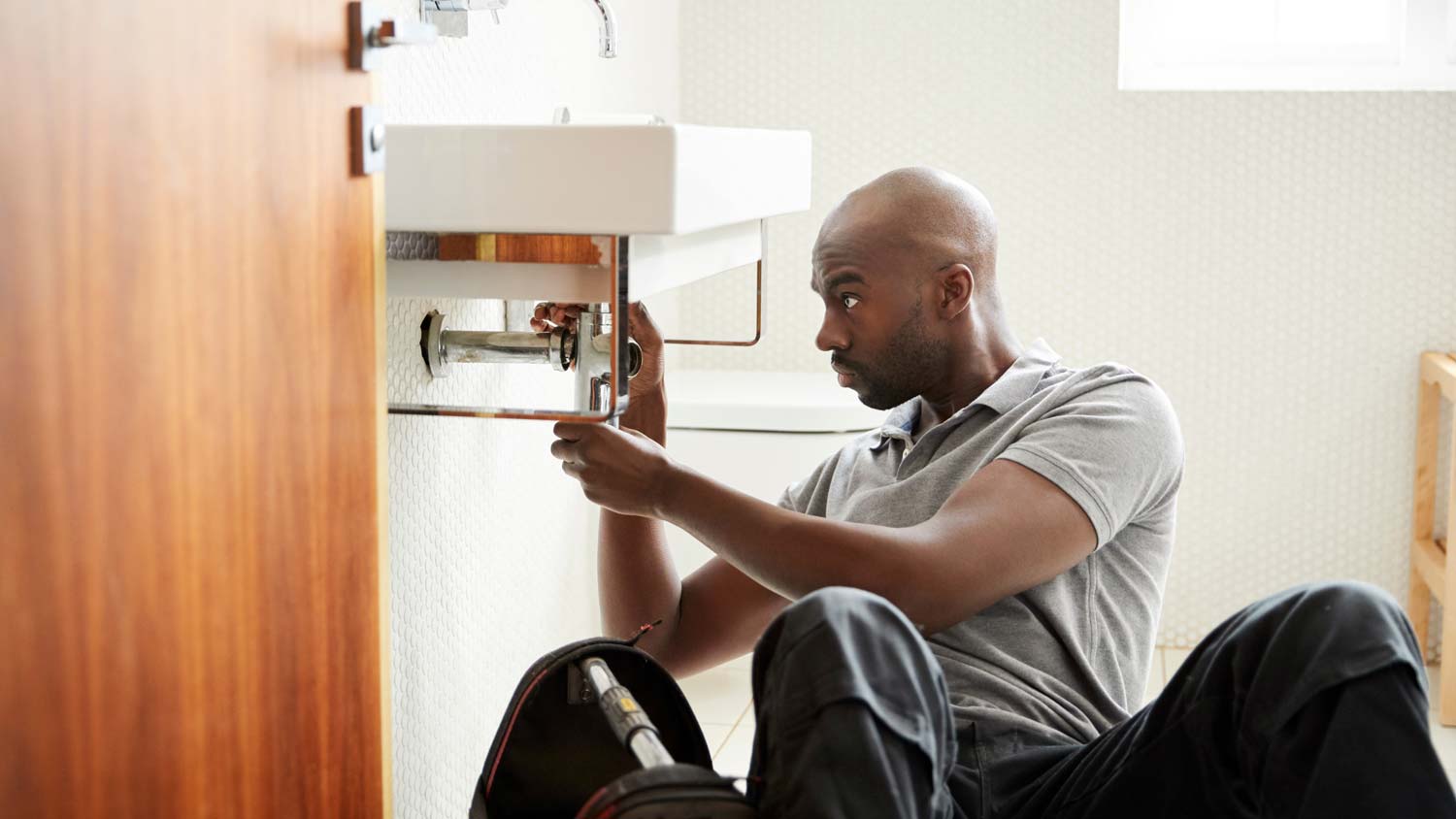
If you’re changing the layout of your bathroom fixtures or your pipework is past its prime and needs rerouting or replacing, you’ll need to factor in plumbing work. The cost to hire a plumber is $45 to $200 per hour, costing around $1,000 to $2,000. Remember that the final cost will depend on the project size and type.
Electrical Wiring
Changing the bathroom layout usually means rewiring work. The cost to hire an electrician is about $50 to $100 per hour.
Asbestos Tile Removal
If you live in an older home, you might find this hazardous and highly regulated material lurking behind the tiles in your bathroom. Asbestos tile removal costs range between $5 and $20 per square foot.
Dumpster Rental
If you’re ripping apart your small bathroom, unless your contractor agrees to remove it, investing in the cost of a dumpster rental is money well spent. A 15-cubic-yard dumpster is big enough for a small bathroom remodel, costing between $240 and $650 to rent.
Architect or Design Costs
Major makeovers often involve a redesign of your layout. If you're moving walls as part of your project and want to make the most of the margins, you might want to hire a local architect. The average architect costs are $125 to $250 per hour.
An interior designer can add value to less ambitious projects, helping you to organize your space and manage your budget. Interior designer costs range from $50 to $200 per hour.
Structural Engineer Costs
If you’re removing or modifying a load-bearing wall as part of your small bathroom remodel, you’ll need to hire an engineer to make sure the design is structurally sound. The average cost to hire a structural engineer is between $345 to $800.
Converting a Half Bath to a Full Bath
If you plan to convert a half bath to a full bath, you’ll need to install a new bathtub, at a minimum, for around $7,200. Most commonly, homeowners upgrade their bathroom with a tub-and-shower combo—which costs between $4,500 and $12,000—depending on the materials.
Other costs could include installing a new vanity, toilet, and accessories in addition to flooring, tiling, piping, and paint.
DIY Small Bathroom Remodel vs. Hiring a Pro
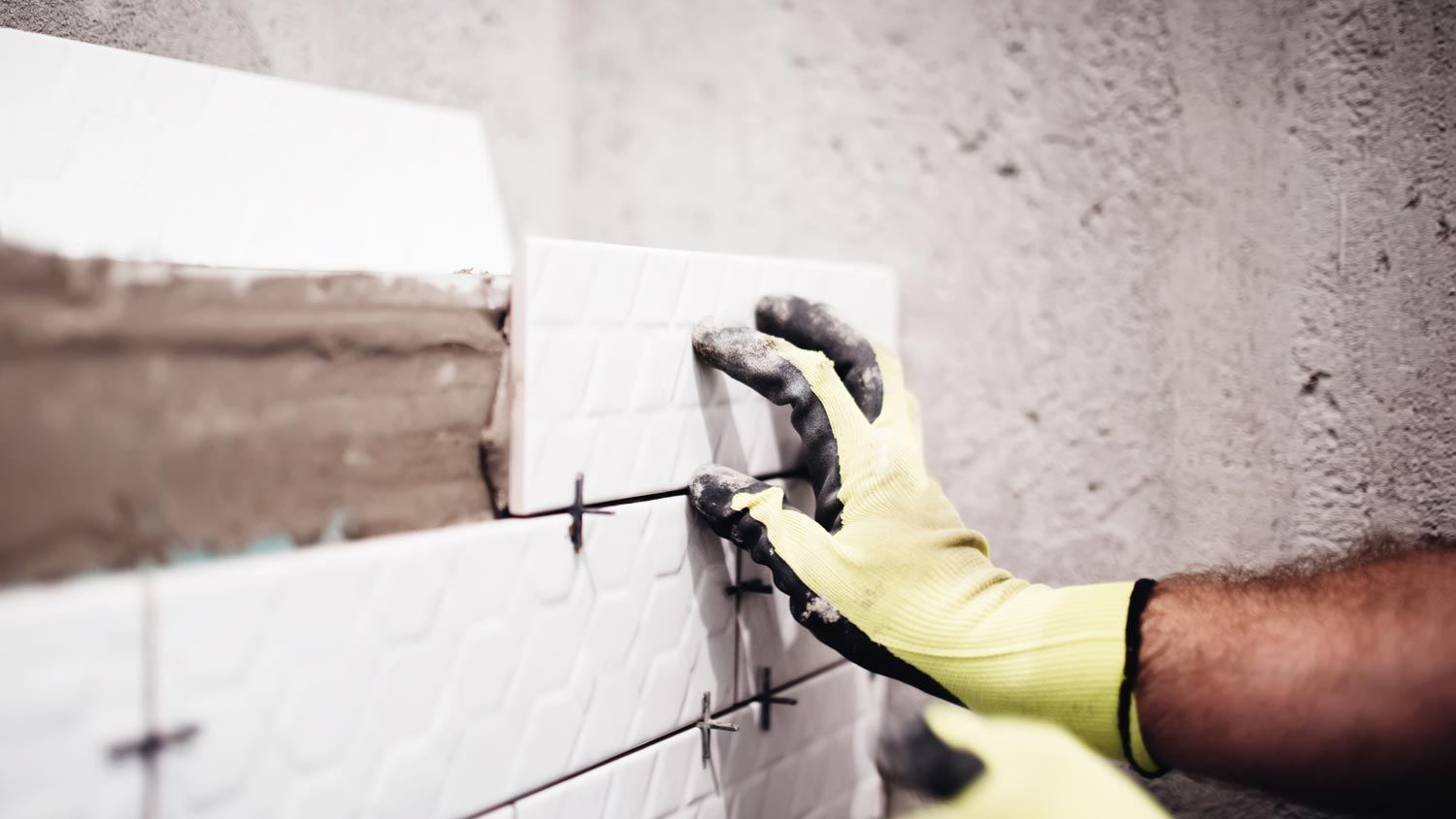
A DIY small bathroom remodel costs about $70 per square foot with budget-friendly fixtures or approximately $2,500 for a 35-square-foot bathroom. This approach saves on labor costs, but you still need to account for the materials, fixtures, tools, and time you put into the project—which could be several weekends.
Consider hiring a local bathroom remodeler for anything beyond basic bathroom upgrades. “We advise DIYers to do basic plumbing tasks themselves, but hire plumbers to do things like shower valves, tub and shower drains, and shower pans, which is the waterproof membrane under a new tiled shower,” says Bob Tschudi, an Expert Review Member and Raleigh, N.C.-based general contractor. “If any of these are done improperly, the repairs can cost thousands of dollars.”
Depending on your experience level, changing lights and plumbing fixtures might be a task you can take on yourself. When undertaking a DIY bathroom remodel, be ready to face potential surprises and unexpected expenses. For example, you could run into subfloor damage requiring repairs or replacement.
Refreshing your bathroom on a budget? A fresh coat of paint, DIY shelving, or a new faucet are simple and inexpensive ways to improve your aesthetic.
How to Save on Small Bathroom Renovation Costs

Don’t throw money down the drain. Follow these tips to save on your bathroom remodel:
Shop annual hardware store and online sales in search of bargain items such as baths, showers, and vanity units.
Don’t change the floor plan.
Refinish rather than replace countertops.
Refinish rather than replace bathtubs when possible. Typically, bathtub refinishing costs less than $650.
Choose high-quality finishes without blowing your budget. For example, opt for engineered stone rather than marble countertops.
Perform the simplest DIY jobs to cut costs, like repainting walls or adding a towel warmer.
Does Remodeling a Bathroom Increase Home Value?
A well-executed bathroom remodel has a solid return on investment. The ROI for a bathroom remodel is 55% to 60% on average, making it one of the smartest home upgrades. If you’re thinking of selling your home at some point in the future, potential buyers will be looking for modern, updated bathrooms—especially in master suites and on the main floor.
Focus on quality fixtures, proper waterproofing, and timeless design instead of trendy features that can quickly become outdated. The sweet spot for most homeowners is a mid-range renovation that upgrades the space while still keeping costs reasonable.
How Angi Gets Its Cost Data
Home is the most important place on earth, which is why Angi has helped more than 150 million homeowners transform their houses into homes they adore. To help homeowners with their next project, Angi provides readers with the most accurate cost data and upholds strict editorial standards. We extensively research project costs to develop the pricing data you see, so you can make the best decisions for you and your home. We rely on reputable sources, including the U.S. Bureau of Labor Statistics, academic journals, market studies, and interviews with industry experts—all to ensure our prices reflect real-world projects.
Want to help us improve our cost data? Send us a recent project quote to costquotes@angi.com. Quotes and personal information will not be shared publicly.
Frequently Asked Questions
The most expensive part of a bathroom remodel tends to be labor, which accounts for about 40% to 60% of the total project cost. Professional bathroom remodeling contractors tend to calculate labor prices at about $300 to $500 per day. Plumbing is another significant cost factor that can add thousands to your bill, and certain materials or structural changes can also add up.
Small bathroom renovation costs don’t have to break the bank. A $5,000 budget is realistic, provided you're not adding luxurious fittings or making complex layout changes. Changing the layout is the most costly aspect of renovating a bathroom. So if you keep the layout, do some of the job DIY (within your skillset), and use relatively affordable fixtures and accessories, you should be able to stay within your budget.
It depends on the size of your remodel and whether you’re a DIY weekend warrior completing some of the work yourself. On average, everything should be done and dusted off within two to five weeks.
However, other projects may take longer depending on the square footage of the room, the scope of the project, and the complexity of the various installations. For example, retiling the floor and shower and replacing the vanity will take longer than simply doing a deep clean and changing out fixtures.
The order of your bathroom renovation should prevent damage to the completed work. Start with demolition and removing the old fixtures. Then, address structural repairs or water damage, if needed. Next, tackle the rough-in phase for plumbing and electrical work, install waterproofing, and work on wall treatments like tile or paint. Install your shower or bathtub, toilet, vanity, and sink. Flooring goes in after major fixtures but before the toilet. Lastly, install new lighting fixtures, mirrors, and other finishing touches as desired.
A spacious walk-in shower with quality glass doors is one of the best bathroom updates for your ROI, especially when replacing an outdated tub-shower combo. You can also install a double bathroom vanity for extra space and luxury. If you’re looking for budget-friendly upgrades, small changes like adding lighting fixtures can make a major difference in how your bathroom looks.
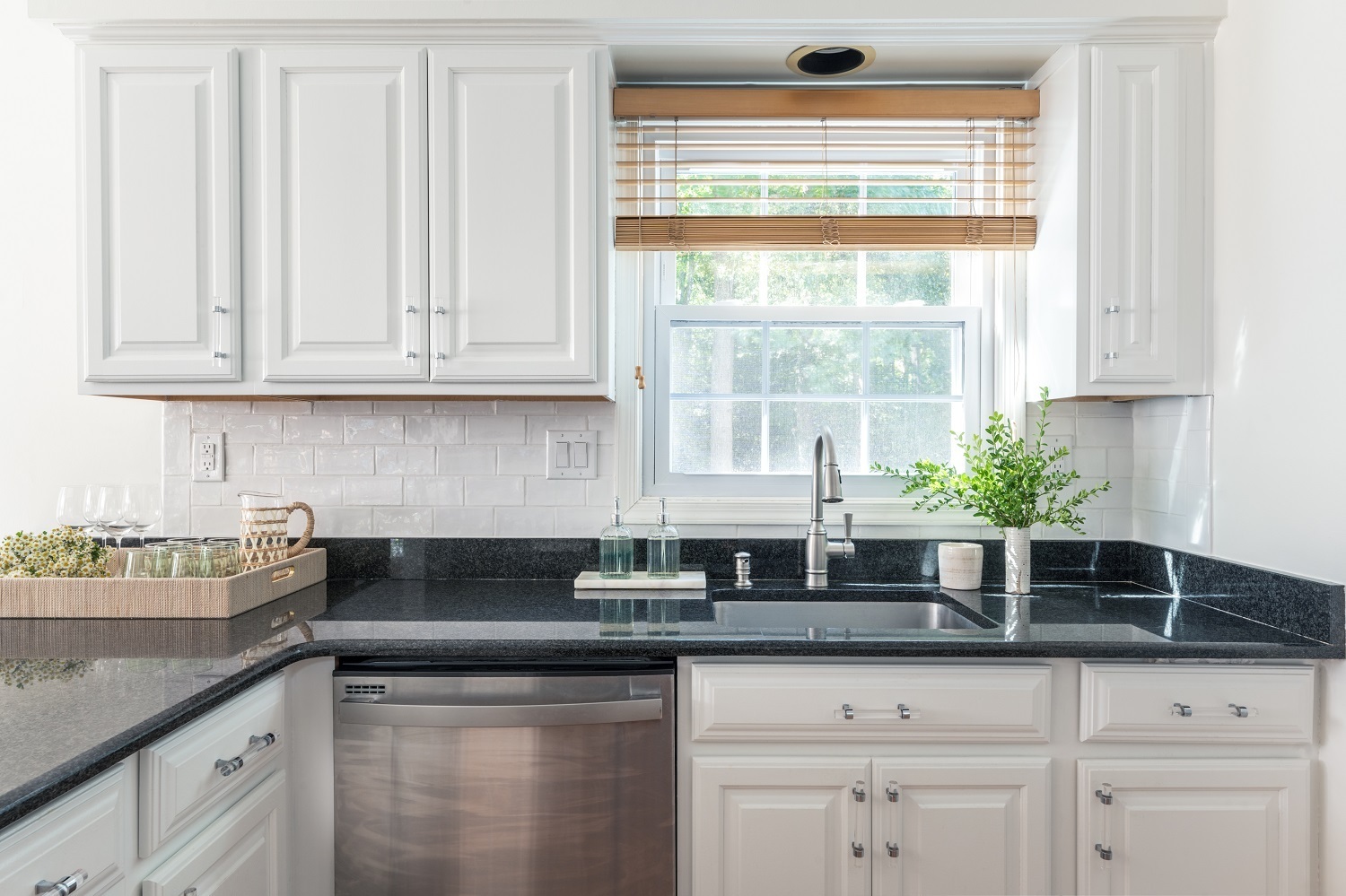
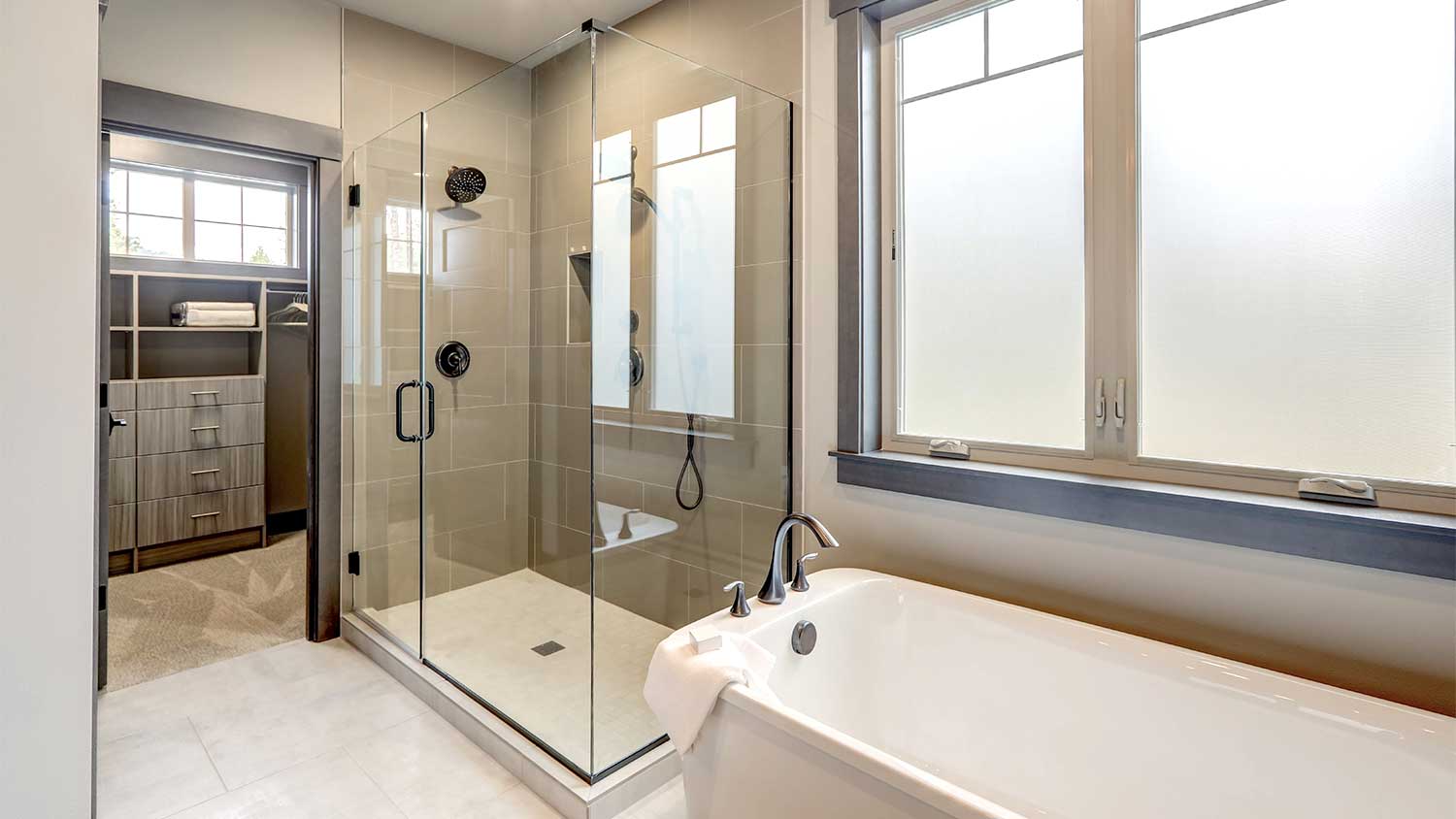



- Bathroom Remodeling
- Kitchen Remodeling
- Shower Installation
- Stair Installers
- Bathtub Installation
- Shower Door Installers
- Kitchen Design
- Bathroom Design Companies
- Storm Shelter Builders
- Pre-Made Cabinets
- Kitchen Refacing
- Bathtub Replacement
- Ceiling Tile Installation
- Suspended Ceiling Companies
- Residential Designers
- Stair Builders
- Remodel Designers
- Shower Enclosures
- Home Renovations
- Kitchen Renovations
- Garage Remodeling
- Grab Bar Installation
- Walk-In Tub Installers
- Tub to Shower Conversion
- Balcony Contractors












